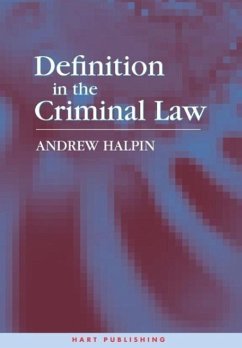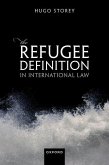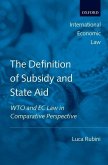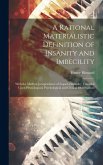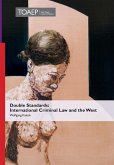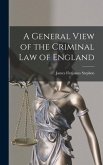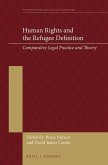In recent years,a number of key terms of the criminal law have seemed to defy definition. Scepticism over the possibility of defining basic concepts and identifying general principles has been voiced by both judges and academic commentators. This raises broad issues of theoretical interest, but also touches on such practical concerns as the efforts made by the Law Commission to reform the law as well as wider proposals for the codification of criminal law. Furthermore, the Human Rights Act incorporates a requirement of legality under Article 7 of the ECHR, whose scope is clearly connected to our understanding of how criminal offences are defined. This book undertakes an investigation of the role and scope of definition within the criminal law, set within a wider examination of the nature of legal materials and the diversity of perspectives on law. It offers a fascinating account of how the rules and principles found within legal materials provide opportunities for responding to, rather than merely following the law. In the light of this account, the book takes issue with some of the established views on the roles of judges and academics and, in a series of case studies concerning the definition of theft and changes to the definition of recklessness recently introduced by the House of Lords in R V G , explores the intimate connection between the use of legal materials and the practice of definition. More specific objectives of the book involve providing a more rigorous assessment of the serious challenge made by a 'criticial' perpective on the criminal law; challenging the conventional intellectual apparatus of the criminal law; demonstrating how general theoretical insights on the process of definition can assist with the practical problems of defining criminal offences; clarifying the uses of definition in the work of the judiciary and law reformers; and, determining realistic expectations for the principle of legality within the criminal law.
Hinweis: Dieser Artikel kann nur an eine deutsche Lieferadresse ausgeliefert werden.
Hinweis: Dieser Artikel kann nur an eine deutsche Lieferadresse ausgeliefert werden.

